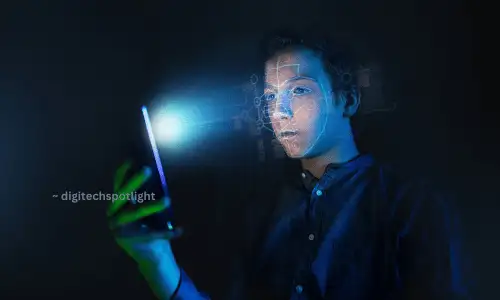Android and iOS has long been at odds, and its influence can be felt in technology today. But just as the original iPhone introduced by Steve Jobs in 2007 marked the beginning of smartphone era, experts predict we are approaching an end of this stage of technological competition.
Alexander Manu, an esteemed futurist and strategic foresight professor at Columbia University’s Strategic Foresight Program, noted in a November 2023 interview that every technology acts as a bridge to another. According to Manu, every few years “we reach something called “The Beginning of the End”, where everybody must move onto newer levels.” His observations mirroring technologies like fax machines and landlines which may become outdated; making parallels to smartphones which may become less of an imperative in society.

Manu’s analogy extends to office supplies that once seemed indispensable, such as scanners, printers and photocopiers – however these have mostly fallen out of use over time. Furthermore, once revolutionary innovations like selfie sticks have now fallen from favor.
Yann LeCun, Meta’s Chief AI Scientist, predicts that AR glasses will soon replace handheld devices as the future of mobile computing. LeCun envisions an age in which we keep computers in our pockets but interact with digital content via AR glasses that overlay digital onto real world scenarios – for instance signs in foreign languages could be automatically translated and displayed through AR glasses to make navigation simpler and intuitive.
Meta’s recent innovation, the Meta Ray-Ban Smart Glasses, have received positive industry reviews, signaling an emerging shift toward wearable technology. Furthermore, AI-assisted earbuds with cameras may indicate an even wider trend toward incorporating AI and AR into everyday life.
Apple’s Vision for the Future
Apple is providing mobile computing with its vision Pro device as its answer for its future. While not without some drawbacks, this mixed reality technology represents an enormous step forward; but like iPod was once considered indispensable; Vision Pro may just be transitional technology.
As Manu mentioned, we are at an inflection point with emerging technologies like:
- Mixed Reality Headsets: Devices that combine virtual and augmented reality experiences.
- Smart Rings: Wearable devices which provide notifications, health tracking features and more.
- Augmented Reality Glasses: Glasses that overlay digital information over physical reality.
- Neuralink Chip: Elon Musk’s brain-machine interface designed to combine human minds and artificial intelligence.
- Humane AI Pin: A discreet wearable device providing AI assistance. Both technologies could change how we engage with digital information – moving beyond smartphone use as our only portal into it all.
Conclusion
The potential obsolescence of smartphones by 2030 marks an immense transformation in personal technology. Advancements like AR glasses, AI-assisted devices, and mixed reality headsets will herald an age where digital interactions will become more immersive and integrated into daily life. We stand on the brink of this technological leap; transitioning away from smartphones towards these advanced devices will forever alter our relationship with technology.